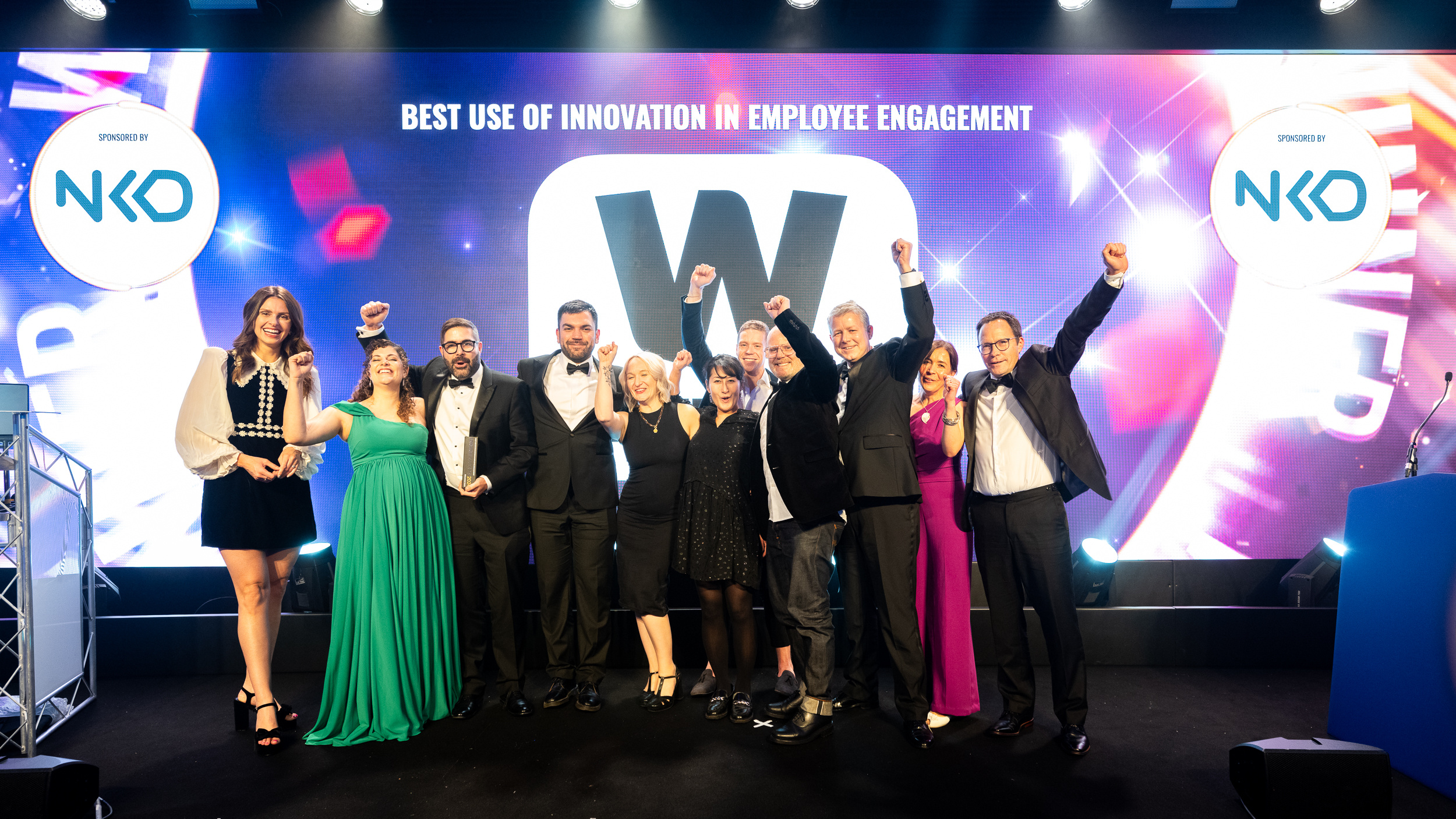Unlocking Workplace Potential: Insights on Employee Engagement, AI Innovation, and Leadership

Hear from Stavy Papasotiriou, an organisational psychologist and the founder of Work Unlocked on the her career and industry insights.
Hello! Please introduce yourself and your current role
Hi there! I’m Stavy Papasotiriou, an organisational psychologist and the founder of Work Unlocked. With a deep background in understanding employee behavior and what truly drives workplace happiness, I’ve dedicated my career to helping organisations create environments where people can thrive.
At Work Unlocked, I blend years of experience and scientific research to craft consulting services that boost engagement, productivity, and, most importantly, psychological well-being. Every strategy and resource we offer is tailored to the unique needs of each organisation. I love partnering with leaders to develop solutions that not only meet their goals but also create a positive, lasting impact on their teams.
If you had to highlight one thing you’re most proud of achieving over the course of your career, what would you say?
One of the accomplishments I’m most proud of in my career is a well-being intervention my team and I developed for Doctors Without Borders in Ethiopia. This project was unique not only because of its immense social impact but also because, unlike in many other settings, we couldn’t change the work itself. These dedicated individuals are committed to life-saving work that often leads to significant stress and burnout.
Our approach focused on creating resources and strategies to buffer the negative impact of these intense demands. We developed a comprehensive well-being program that equipped healthcare workers with tools and support to better cope with the emotional and psychological challenges they face. This included stress management techniques, peer support systems, and other resources aimed at helping them remain resilient despite ongoing hardship.
Seeing the positive changes this intervention brought to their lives and knowing we could support those on the front lines of such critical work was incredibly rewarding. It’s a project that truly reflects the impact I aim to achieve through my work—helping people not just survive but find ways to thrive, even in the most challenging circumstances.
What are the main initiatives you’re currently working on relating to Employee Engagement?
Right now, I’m thrilled to be spearheading some exciting initiatives that are redefining how we approach employee engagement. One of our main priorities is to continuously evolve our strategies based on cutting-edge psychological research. We’re blending innovative psychological principles with interactive experiences—like gamified engagement programs and immersive workshops—that make employee connection and motivation both impactful and enjoyable.
We’re also embracing AI in new ways to enhance engagement. This includes real-time insights and personalised suggestions as well as future projections on employee engagement, performance, and retention. Overall, we’re committed to creating engagement solutions that are not only forward-thinking but also deeply human-centered. By marrying the freshest research with creative strategies and tech-driven tools, we’re helping organisations build vibrant, engaged workplaces where employees thrive.
What do you think the biggest opportunities are within the industry at the moment?
One of the most promising opportunities in the industry is leveraging AI to boost employee happiness and engagement. AI can analyse data to predict trends in employee behavior, retention, and success, allowing companies to proactively address potential issues like burnout or disengagement. This predictive capability, combined with AI-driven personalized career development plans, helps ensure employees feel supported and valued, directly enhancing their well-being and job satisfaction.
AI also improves communication and feedback within organisations through sentiment analysis, giving leaders real-time insights into workforce morale. Additionally, by automating routine tasks, AI frees up employees to focus on more meaningful work, reducing stress and contributing to a healthier, more productive workplace. This use of AI offers a powerful way to create a more responsive and supportive work environment, helping organisations not only retain talent but ensure employees truly thrive.
On the flipside, what do you feel are the biggest challenges that organisations need to overcome?
One of the biggest challenges organisations need to overcome is the growing appeal of the gig economy. Gig work offers professionals a high degree of autonomy, allowing them to choose when, where, and how they work—freedom that traditional jobs often struggle to match. This autonomy is a key psychological need for employee happiness, making gig jobs increasingly attractive compared to conventional roles.
To address this challenge, companies need to rethink their approach to job design. Offering more flexibility, remote work options, and opportunities for employees to have greater control over their work can help bridge the gap. The challenge lies in creating work environments that provide the same sense of autonomy and fulfillment that draws so many to gig work, ensuring that traditional employment remains competitive and appealing.
Do you have any advice or top tips for anyone reading this who’s starting out in the industry and wanting to become a senior leader?
For anyone starting out in the industry and aspiring to become a senior leader, my top advice is to cultivate both your expertise and your emotional intelligence. Mastering the technical skills and knowledge in your field is essential, but equally important is your ability to understand, connect with, and inspire others. Leadership is as much about building relationships and fostering a positive, collaborative environment as it is about making strategic decisions.
Another key tip is to embrace continuous learning. The industry is always evolving, and staying curious and open to new ideas will set you apart. Seek out mentors, stay informed about the latest trends and research, and don’t be afraid to ask questions. Leadership is not about having all the answers, but about being adaptable and willing to grow. Finally, remember that resilience and empathy are crucial. The path to leadership comes with challenges, but approaching them with a mindset of learning and understanding will not only help you succeed but also make you a leader others want to follow.
What would you say is the key defining factor that will shape the industry going forward?
The future of the industry will be defined by those who can innovate technologically while maintaining a commitment to ethical practices and preserving the human element at the core of their strategies. As we advance, leveraging technologies like AI and data analytics to enhance employee experience, engagement, and well-being will be crucial. However, the real game-changer will be how effectively these technologies are used to complement and elevate the human aspects of work.
Organisations that successfully blend cutting-edge technology with a strong focus on emotional intelligence, inclusivity, and personalised employee experiences will lead the way. This means using data not just to drive efficiency but to create more meaningful, supportive, and engaging work environments. Yet, it’s vital to address the darker side of this technological evolution, including concerns about job displacement and ethical considerations. The challenge lies in ensuring that advancements in AI and automation do not undermine job security or exacerbate inequalities.




